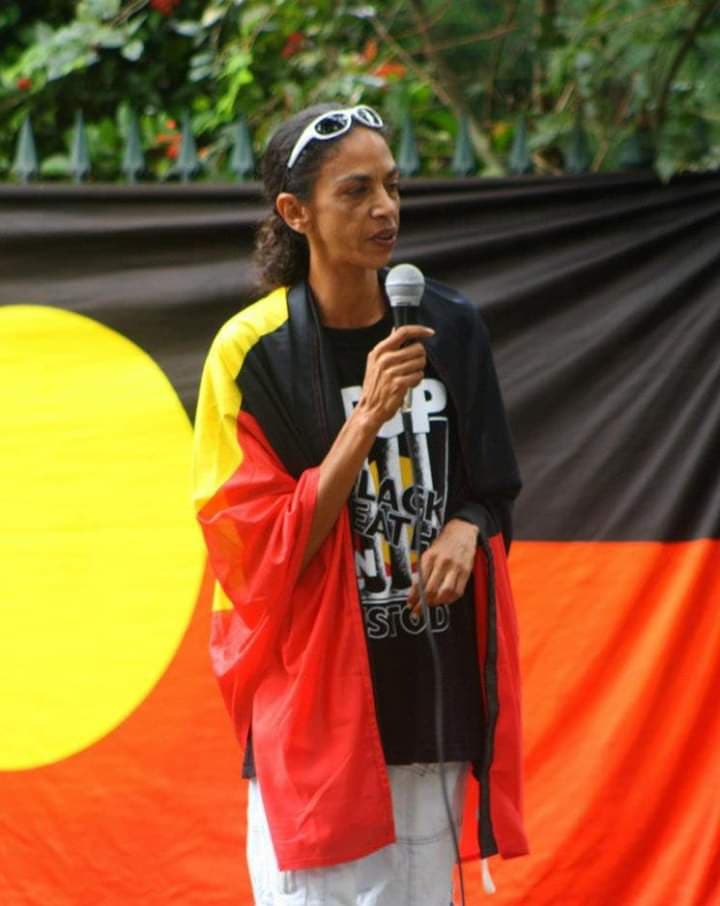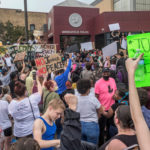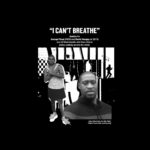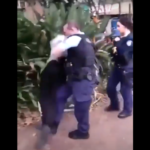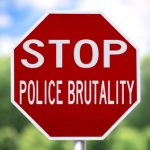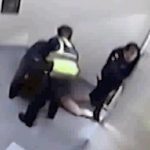Stop Black Deaths in Custody: An Interview With Gomeroi Activist Gwenda Stanley
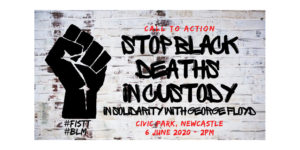
Black Lives Matter protests have erupted across the United States in more than 350 cities. Those mobilising are demonstrating against a racially prejudiced system that leads to the loss of so many African American lives at the hands of law enforcement officers.
The protests were sparked by the 25 May killing of George Floyd. White police officer Derek Chauvin knelt upon the neck of the 46-year-old black civilian on the side of the road in Minneapolis, until he lost consciousness and beyond.
And the stark footage of the murder captured by passers-by on their phones went viral.
True history buried
Reporting from Los Angeles, Australian Channel Nine reporter Alexis Daish was speaking to protesters, when she questioned one demonstrator as to what he meant by the statement that the US nation “was built upon violence”.
“I’m not going to give you a history lesson,” countered the protester. “If you don’t know, then that’s the problem. You don’t know where the violence starts.” To which Daish replied that people in Australia don’t have the “understanding of the history of police killings over here”.
These comments from the Anglo Australian reporter were called out by First Nations commentators back home, who were not only embarrassed by her lack of understanding about what’s going on in the States, but also outraged by her ignorance over Aboriginal deaths in custody in this country.
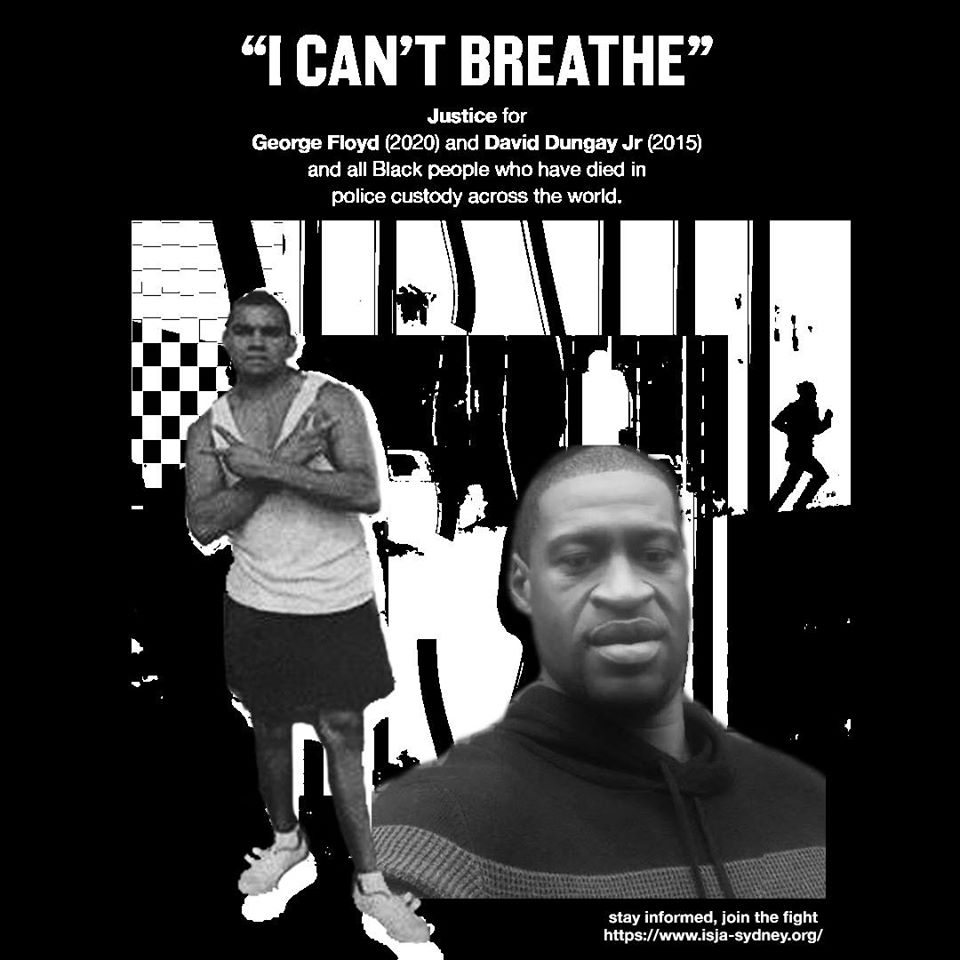
Deaths down under
FISTT spokesperson Gwenda Stanley has come to expect this lack of knowledge around the true history in Australia. The Gomeroi activist knows too well that much of the violence and dispossession that took place during the colonisation of this continent has conveniently been forgotten.
But, it’s not just this dearth in true history that Stanley’s concerned with, it’s also the current systemic racism in the Australian criminal justice system that she’d like to see understood by those overseas, who are in a position to convey what’s happening back here.
According to the Guardian, there have now been 432 First Nations deaths in custody since the Royal Commission handed down its recommendations in 1991.
And there’s never been a single conviction of a police officer or a prison guard in relation to custody deaths going back much further.
Fighting in solidarity
This Saturday Stop Aboriginal Deaths in Custody-Black Lives Matter rallies are taking place across Australia. The mobilisations are in solidarity with the uprising in the United States, but the actions are also a moment to acknowledge the injustices in this land.
Just this week, a NSW police officer kicked the legs out from under a 16-year-old Aboriginal teenager in Sydney’s Surry Hills and slammed his head into the ground. The officer still felt emboldened to take this action despite the globe being up in arms about police brutality against people of colour.
Sydney Criminal Lawyers spoke to FISTT’s Gwenda Stanley about the message being conveyed at this weekend’s rallies, the widespread amnesia regarding the true history in this country and the incidents of violence against First Nations people that it’s now important to reflect upon.
Firstly, there are uprisings taking place across the US over the recent killing of George Floyd. Gwenda, what are your thoughts on what’s happening over in the States right at this moment?
You can understand why they’re going off – enough is enough. There was too much police brutality right there for the world to watch.
The woman who recorded the footage, Darnella Frazier, my heart goes out to that sister. I’ve been in situations myself where I’ve just had to stand and watch cops bashing my mob.
And thanks to the media of the day, especially social media, we’re exposing the truth – the reality of being black.
Australians have been shocked by the footage they saw of the brutal killing of Floyd. However, many have made the point that a similar racial prejudice operates in the Australian law enforcement system.
In your understanding, how can people over here be outraged about the US while continuing to overlook what’s happening here in regard to the policing of First Nations people?
It’s the censorship of the media in Australia. They’re the ones responsible for not allowing the stories to get out there or not getting them correct.
David Dungay’s video went viral. But, for some reason we were getting restrictions on it from the media.
Australian media is not getting our story out there. We’re getting more coverage from the international media, like Al Jazeera. It’s from those outlets that actually have an interest in what’s happening over here in Australia.
Unfortunately, the Australian media is the biggest problem we have in getting our message out there. David Dungay’s video did go viral, but it was censored by the Australia media.
Our history, our issues and the struggles that we’re facing now aren’t covered over here.
I heard that reporter in Los Angeles, Alexis Daish. She’s an example of the kind of people that we’ve educated – they’ve gone to university – but they still come out confused. They have no idea of the history that’s happened in their own backyard.
All these people have been going to university, but they’re coming out confused. They’re all still in denial of the genocide. They’re in denial of the murders and the war crimes that are continually happening here in Australia.
We have had over 430 deaths since the recommendations of the Royal Commission in 1991. And not one police officer has ever been charged for the murder of an Aboriginal person.
The last case we had was in December 1838, when seven men were hung for the Myall Creek massacre. That was the only time we got justice.
The protest on the weekend is on 6 June. On 10 June 1838, the Myall Creek massacre happened. The only ones that were found guilty and got hung were the seven freed convicts. No one from the regiments got a mention.
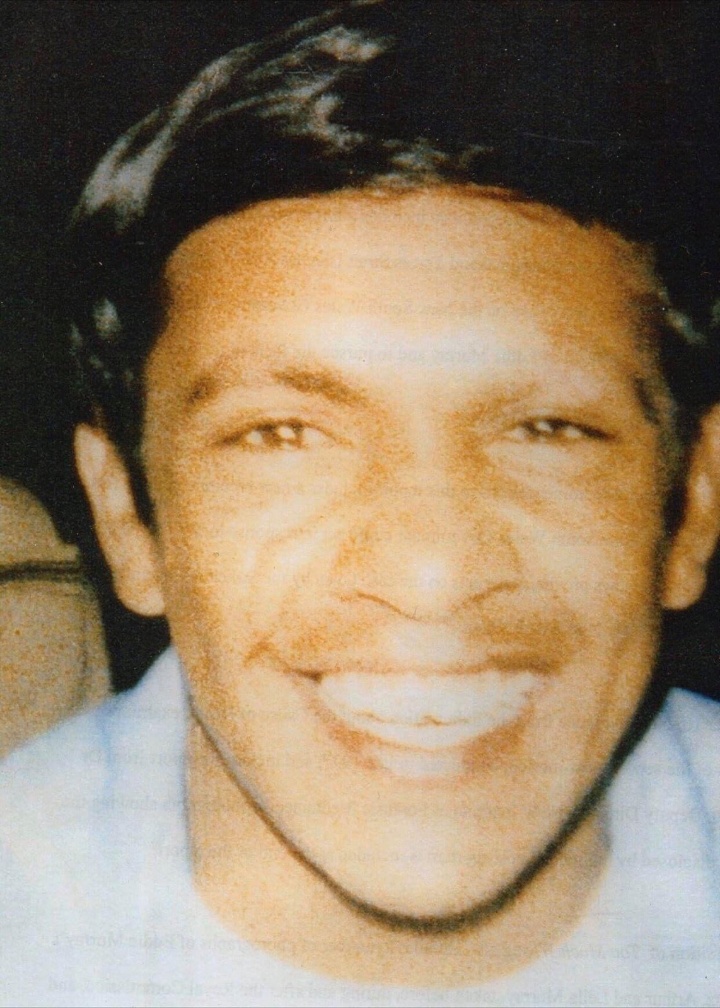
As you’ve mentioned, there have been large numbers of Aboriginal deaths in custody, as well as incidents of police dishing out violence towards First Nations people. What are some of the incidents you think it’s important to remember right now?
Let’s remember Eddie Murray and John Pat. Let’s remember Doomadgee on Palm Island. Let’s remember what happened to TJ. Let’s remember what happened in Redfern – right on the streets in Redfern.
Since the day I was born in 1973, coppers have been killing and bashing my people. There were the riots of the early 80s throughout Redfern. Right up into the 90s, my people were being attacked by police.
From the day I was born in 1973, I came into a world of fighting, where police were killing my people.
The point has been made that an institution like the United States police was built upon racial prejudice towards African American people.
Can we say that Australian police forces have been built upon racial prejudice towards Aboriginal and Torres Strait Islander people?
The wealth of Australia was made from the blood of my ancestors. This was a penal colony. It was the Sirius ship that Captain John Hunter came on. They were all part of a punitive expedition.
There was the 80th Regiment, the 50th Regiment and the Light Horse Regiment. And there was everyone else that they brought in, like Watkin Tench.
Then came the Native Police in 1848. After the Native Police did their punitive expeditions from 1848 to 1862, when we then had the NSW Police Force.
So, if you look at the timeline of the history, the police brutality in this country is continuous. Black deaths in custody have been here since the day they arrived.
It was the same ideology and racism that was behind the Australian assimilation policy of 1901.
If you look at the names of the streets that we are walking, they’re the names of the murderers: the Hunters, the Macquaries, the Halls, the Coxs, the Kings and Queens, and the Dukes and Duchesses.
All these streets are idolising the same people who massacred our people. They’re highlighted on these streets. They’re idolised. Queen Victoria is sitting up there.
The protesting in the US has not been limited to African American people. Civilians of all racial backgrounds are rising up against the police. What does this tell us?
It tells us that the police are the problem.
And lastly, there are protests happening across Australia this Saturday in solidarity with the demonstrations in the US, but they’re also reflecting on the local situation.
FISTT is jointly organising rallies in Sydney and Newcastle. What sort of message would you say organisers are hoping to put across at these events?
We want a reopening of all the black deaths in custody cases in Australia. And we also want our own independent body that overlooks all the forensics to do with them.
We want a national body established that’s run by the people and for the people. And we need to reopen all the black deaths in custody cases.
This is what we’re demanding this Saturday, our own national body. We want to do our own independent reviews. And we want police charged.
To everyone who is out there marching, we want you to stand with us every day, because the coppers are bashing everyone: black, white or brindle.
This fight is not just us, it’s everyone.
The “I Can’t Breathe”: Stop all Black Deaths in Custody rally is now meeting at 3 pm Saturday 6 June as Sydney’s Town Hall and will then be marching down to Belmore Park
The Stop Black Deaths in Custody – Justice for George Floyd rally is being held at 2 pm 6 June at Civic Park King Street in Newcastle
The photo of Eddie Murray is used with permission of his family. Mr Murray died in police custody in Wee Waa police lockup on 12 June 1981 aged 21
The photo of Gwenda Stanley is by Brendan Qu
